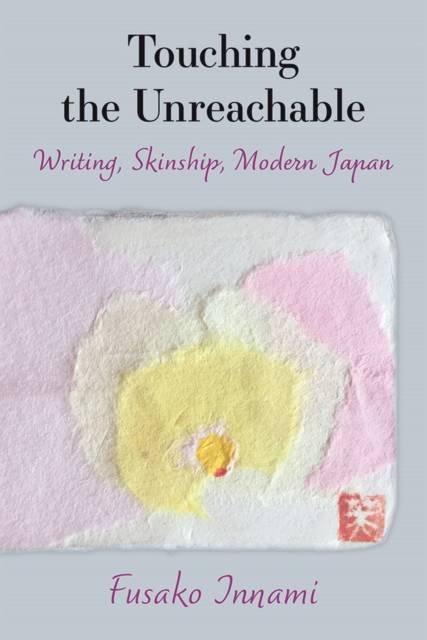
- Afhalen na 1 uur in een winkel met voorraad
- Gratis thuislevering in België vanaf € 30
- Ruim aanbod met 7 miljoen producten
- Afhalen na 1 uur in een winkel met voorraad
- Gratis thuislevering in België vanaf € 30
- Ruim aanbod met 7 miljoen producten
Zoeken
€ 79,95
+ 159 punten
Uitvoering
Omschrijving
Fusako Innami offers the first comprehensive study of touch and skinship--relationality with the other through the skin--in modern Japanese writing. The concept of the unreachable--that is, the lack of characters' complete ability to touch what they try to reach for--provides a critical intervention on the issue of intimacy. Touch has been philosophically addressed in France, but literature is an effective--or possibly the most productive--venue for exploring touch in Japan, as literary texts depict what the characters may be concerned with but may not necessarily say out loud. Such a moment of capturing the gap between the felt and the said--the interaction between the body and language--can be effectively analyzed by paying attention to layers of verbalization, or indeed translation, by characters' utterances, authors' depictions, and readers' interpretations. Each of the writers discussed in this book--starting with Nobel prize winner Kawabata Yasunari, Tanizaki Jun'ichirō, Yoshiyuki Junnosuke, and Matsuura Rieko--presents a particular obsession with objects or relationality to the other constructed via the desire for touch. In Touching the Unreachable, phenomenological and psychoanalytical approaches are cross-culturally interrogated in engaging with literary touch to constantly challenge what may seem like the limit of transferability regarding concepts, words, and practices. The book thereby not only bridges cultural gaps beyond geographic and linguistic constraints, but also aims to decentralize a Eurocentric hegemony in its production and use of theories and brings Japanese cultural and literary analyses into further productive and stimulating intellectual dialogues. Through close readings of the authors' treatment of touch, Innami develops a theoretical framework with which to examine intersensorial bodies interacting with objects and the environment through touch.
Specificaties
Betrokkenen
- Auteur(s):
- Uitgeverij:
Inhoud
- Aantal bladzijden:
- 252
- Taal:
- Engels
- Reeks:
Eigenschappen
- Productcode (EAN):
- 9780472074983
- Verschijningsdatum:
- 15/09/2021
- Uitvoering:
- Hardcover
- Formaat:
- Genaaid
- Afmetingen:
- 152 mm x 230 mm
- Gewicht:
- 517 g

Alleen bij Standaard Boekhandel
+ 159 punten op je klantenkaart van Standaard Boekhandel
Beoordelingen
We publiceren alleen reviews die voldoen aan de voorwaarden voor reviews. Bekijk onze voorwaarden voor reviews.











